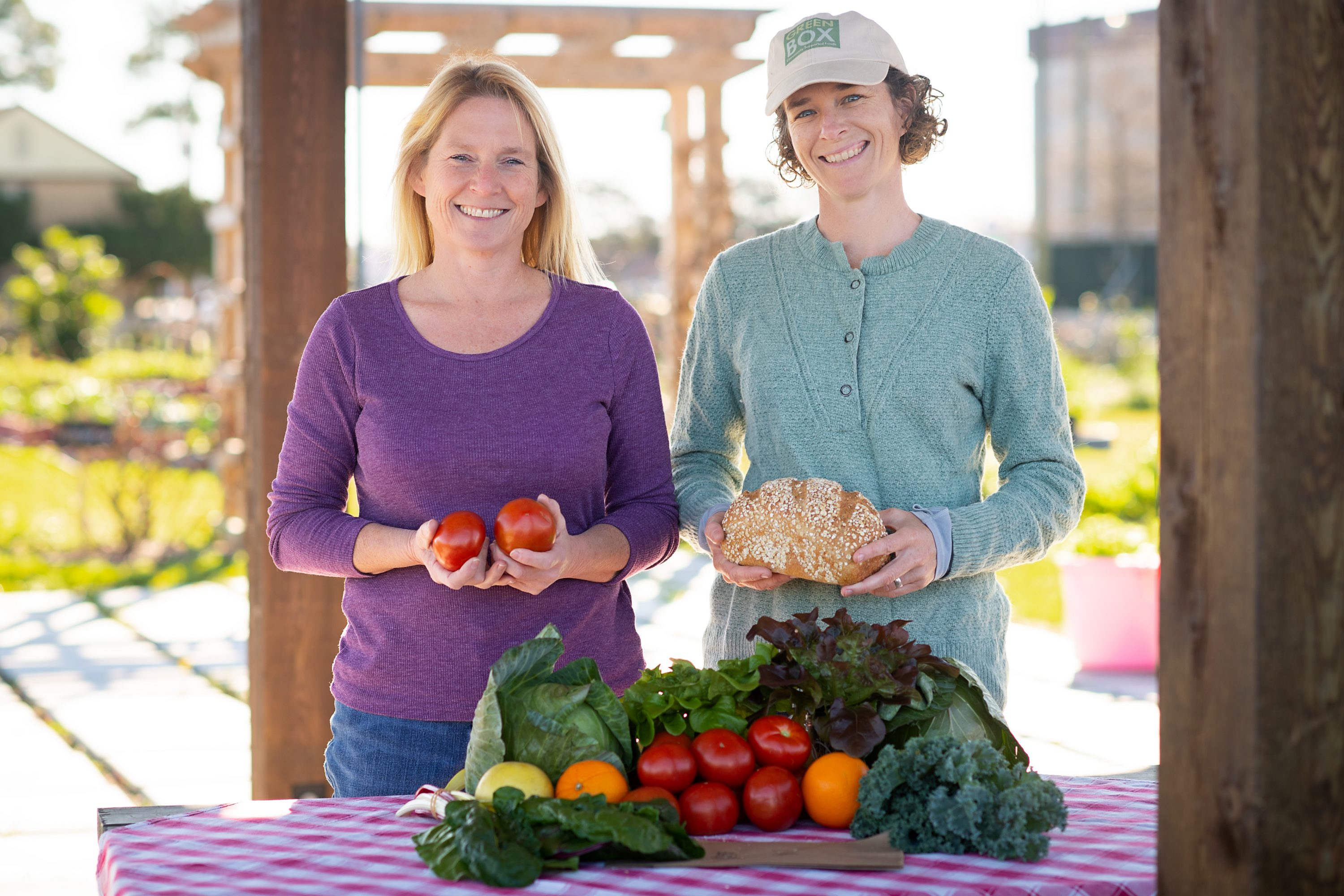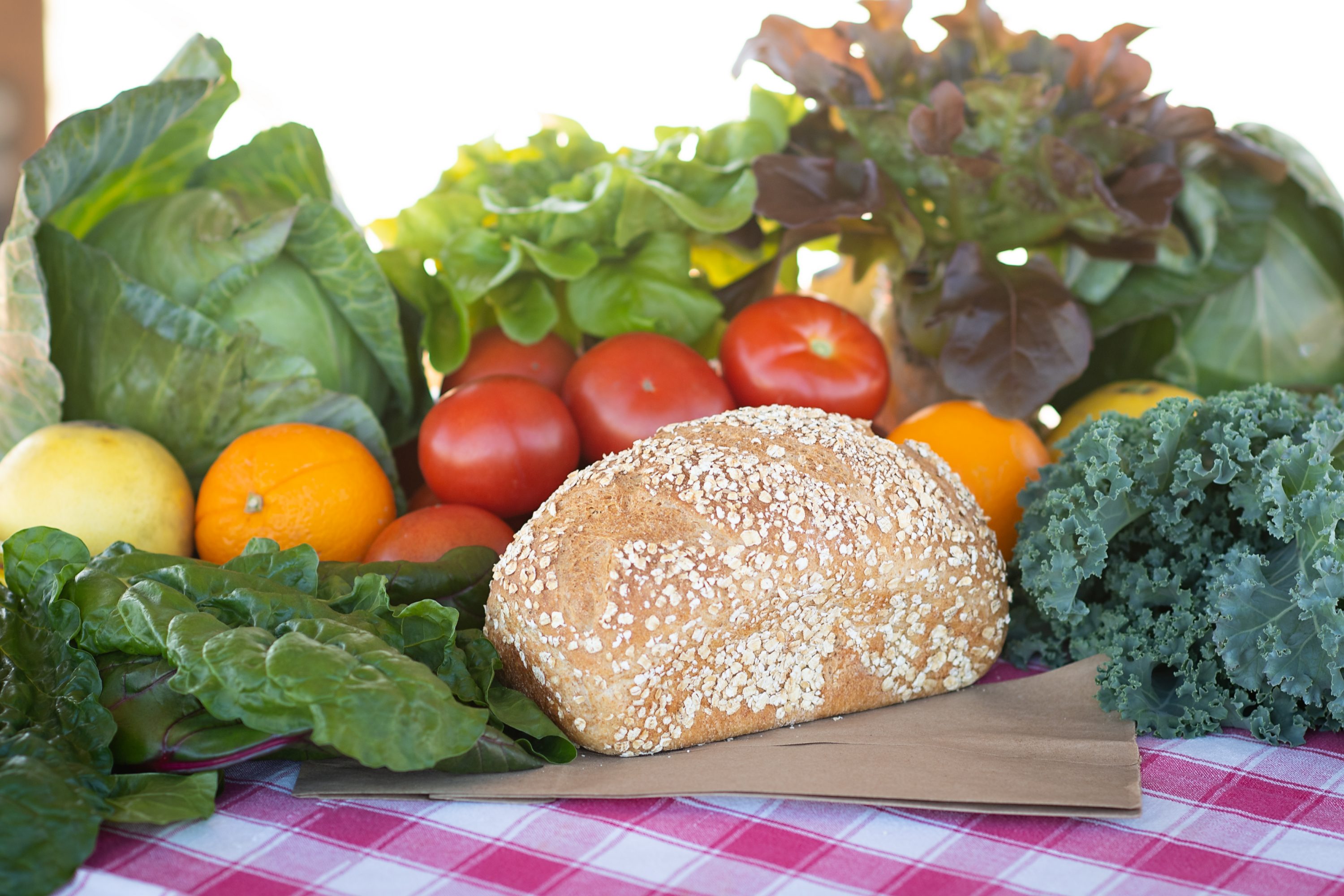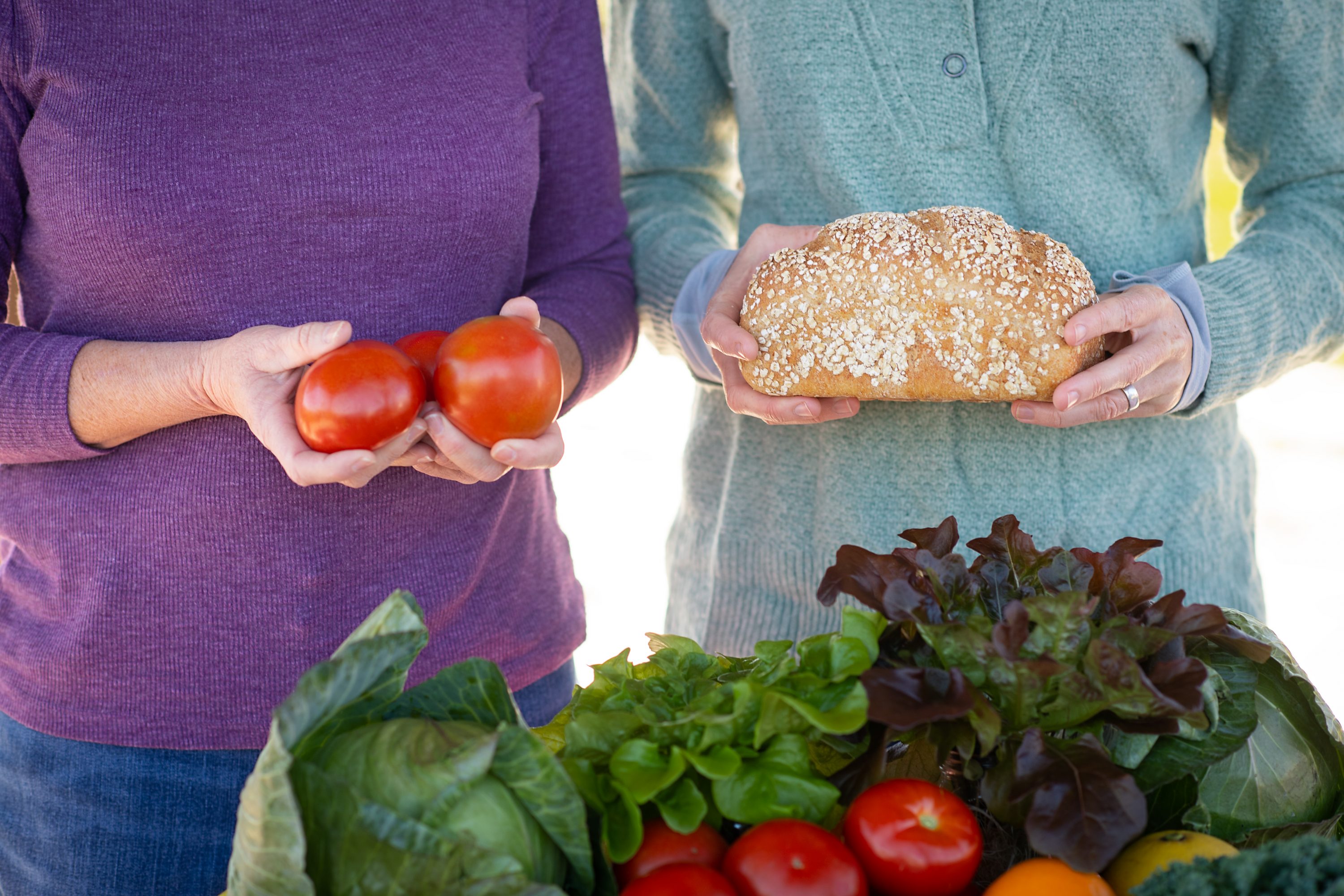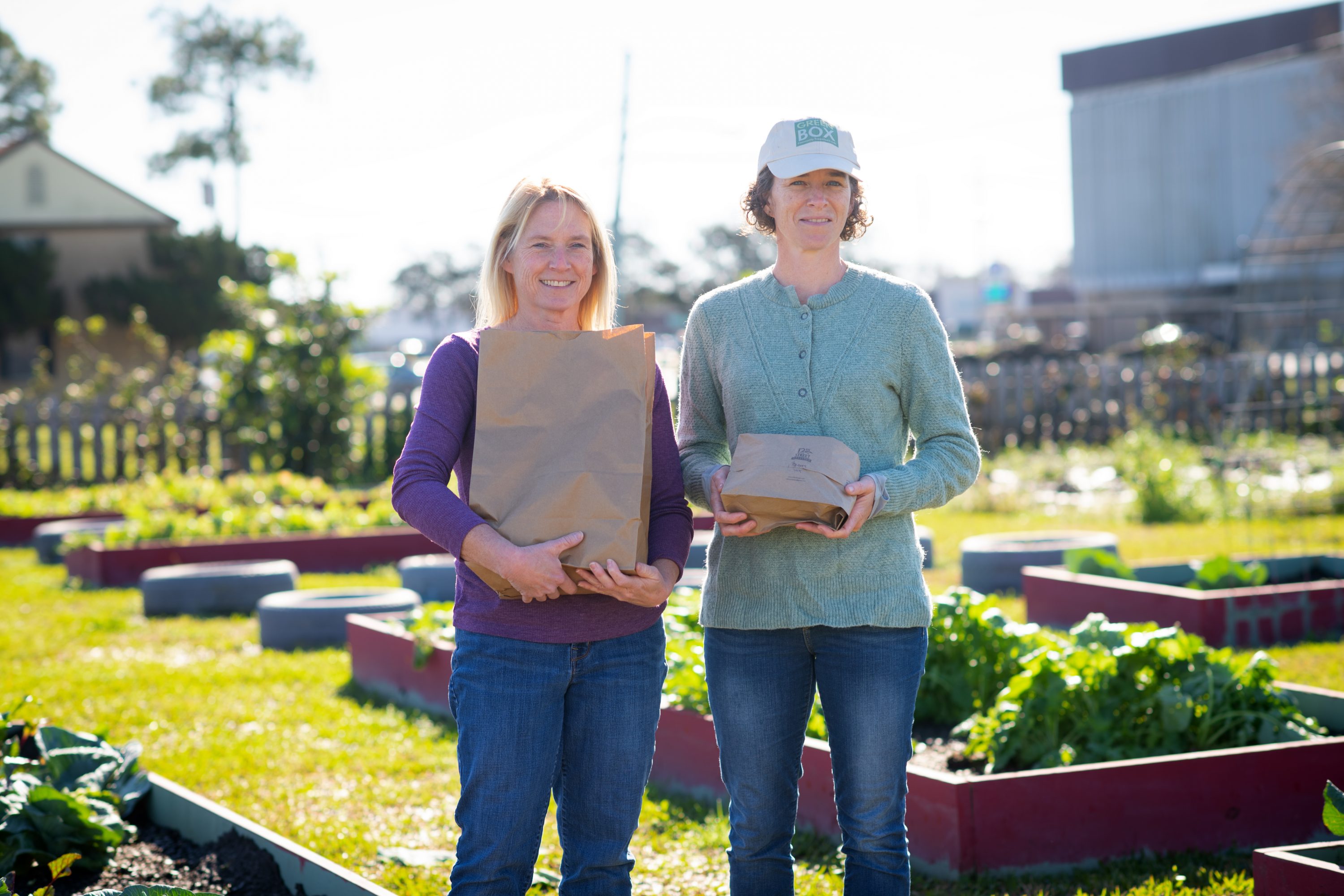
We Will Sea
March 2, 2020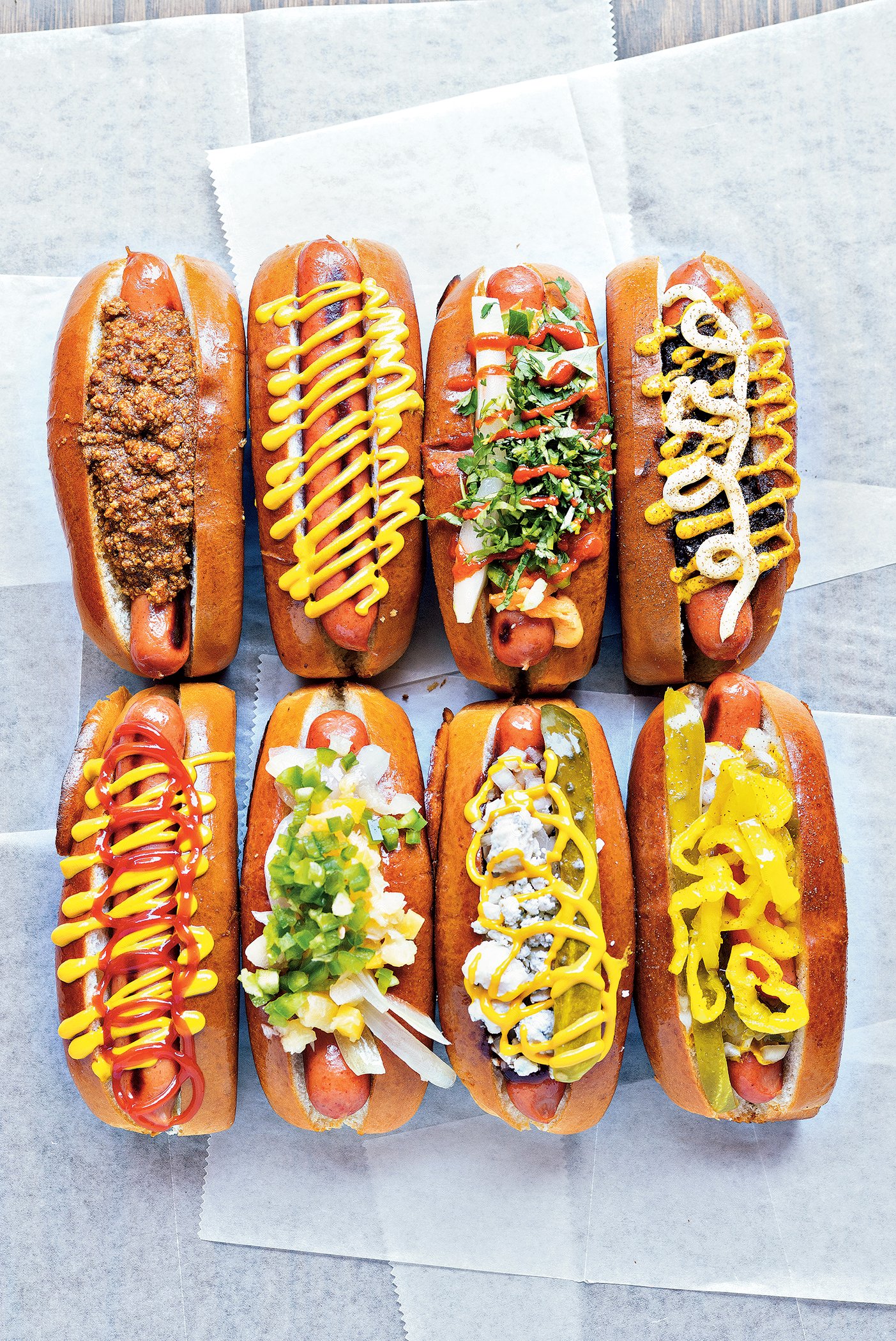
There Should be a Law
March 2, 2020It started as an unlikely partnership between a farmer from Houma and a baker from Alaska. The idea was simple: create a subscription box service that would put fresh produce and bread into customer’s homes on a weekly basis.
Now, as Green Box Community Supported Foods (CSF) wraps up its first weeks of subscriptions, its founders see the potential for the service to do much more.
Cheryl Skinner and Elizabeth Cotter first met in 2015 through a mutual love of farmers’ markets. Both are vendors at the seasonal Rienzi Market in Thibodaux and the South Louisiana Seed Market in Houma, which Cheryl also runs.
Cheryl has always had a love for farming and began growing vegetables after she retired from nursing. Now, she operates the St. Francis Vegetable Garden, a non-profit organization run by volunteers that provides fresh produce to local food banks for people who may not be able to afford it.
Elizabeth grew up in Fairbanks, Alaska, with a dream of starting a bakery. She owned one for five years before relocating to Louisiana. Because she wanted a job that would allow her to return home to Alaska during the summertime, she has continued to operate a bakery from her house.
When Elizabeth first moved to Louisiana, she brought the idea of starting a bread subscription service with her. She had hoped to find a farm with which to partner, but had no success in locating one.
One of Elizabeth’s subscribers mentioned Cheryl and the fact that Cheryl may be interested in selling vegetables through a partnership. The women joined forces soon after. They would meet together at the St. Francis Vegetable Garden’s Thibodaux location, the pickup spot for Elizabeth’s bread subscription service, and Cheryl would sell vegetables to Elizabeth’s customers.
The women had been discussing the idea of starting a joint subscription box for a while. What finally set their idea in motion, though, was a common complaint they began hearing from farmers’ market attendees: people could almost never find time to visit the markets.
Cheryl and Elizabeth saw a solution in their subscription box. With that, Green Box was born.
“We’ve just noticed there’s a need for this, and if we’re both able to handle satisfying that need, why not?” Cheryl says.
Green Box launched in January with 15 spots available. After two-and-a-half-weeks, those spots were filled. The service now has a waitlist.
Subscriptions are $60 for the month and provide customers with weekly arrays of local produce and a freshly-baked loaf of bread. Subscribers pick up their boxes from Cheryl and Elizabeth on set days in Houma or Thibodaux.
“It was kind of a trial run for us. We created the framework for it to continue longer, but it was just the initial run, and just the fact that so many people signed up so quickly was awesome,” Elizabeth says.
Cheryl says that the decision to start Green Box was a leap of faith, due to the unpredictability of growing vegetables.
Both women do have an advantage, though: their services are not weather-dependent.
Cheryl grows her plants hydroponically, a gardening method that relies on a mixture of water and nutrients instead of soil. Green vegetables take roughly two months to produce, while tomatoes take around four months and can be kept producing for a year.
“There’s really not that many vegetables around this time of year, but I have a greenhouse, so I’m able to grow in the off-season. While the other farmers are not doing anything, my season just starts,” Cheryl says.
The types of fruit and vegetables that appear in each bag are dependent upon what produce in particular is growing at the time.
For the first set of bags, Cheryl provided kale, lettuce, cucumbers and tomatoes. Additional produce like cabbage, shallots, oranges and grapefruits were sourced from other local farmers.
On the other side, Elizabeth bakes all of her bread that appears in Green Box deliveries in a slow style, which takes anywhere from 24 to 48 hours to complete. In addition, her bread is free of preservatives.
She rotates among artisan bread varieties for Green Box subscriptions, including rosemary French, hearty oat, rustic and a fourth option that is selected based on what customers are requesting.
The women behind Green Box take pride in the fact that customers know they’re getting food that is locally produced and fresh, as such food has its own special benefits.
For a start, the food stays fresh longer. People also have the comfort of knowing that they don’t have to worry about food crises like the recent lettuce recalls.
“The bag might seem like a little bit to take on for the week, but everything holds because it’s so fresh,” Elizabeth says. “One thing I’ve noticed with bread is that once people get used to the idea of preservative-free bread, it’s hard to go back to store-bought bread.”
In addition, local produce helps to make people more aware of the growing cycle, as well as the livelihoods of local farmers.
Elizabeth says that there is a natural fluctuation with farmers markets because production levels go down during the wintertime. Though farmers will not always have enough produce to take to a market, they are still growing fruits and vegetables in smaller quantities. These smaller quantities are enough for something like a subscription box.
The women believe that Green Box is also helping to shape a movement toward pursuing healthier diets that is taking place in local areas. They feel that older generations are trying to get a hold of their health through their diets, while younger generations are interested in having healthier food options for their families.
By offering easy access to healthier food options, Elizabeth says they are helping to build up and maintain the local community’s physical health. Above all, she believes the unique community bond that exists in South Louisiana is being strengthened by a collective pursuit toward a healthier lifestyle.
“I think we’re part of that growing consciousness, like we’re helping people have fresher foods at home so that they can start to experiment with recipes and then be a little bit more interested in what they’re going out and eating,” Elizabeth says.
Though Green Box is still a new venture, Elizabeth and Cheryl see significant opportunities for growth in the near future.
“We are looking to expand, especially once the spring comes around and more crops start coming in,” Cheryl says.
Though Green Box has a waitlist now, the amount of spaces are set to increase by springtime.
Cheryl is planning to add a second greenhouse, which will increase production volume. Once spring arrives, she says they will be able to add more vegetables like eggplants, bell peppers and green beans to their bags. Meanwhile, Elizabeth hopes to triple her production by increasing her mixer size from a 20-quart mixer to a 60-quart mixer.
The women would also like to expand the offerings in their bags to include eggs, honey and pastries like cookies.
For now, though, the unlikely team of Elizabeth and Cheryl are working on building up their young subscription service – and maybe helping to start a movement along the way. POV

